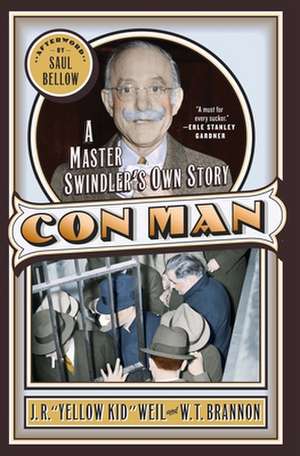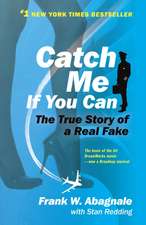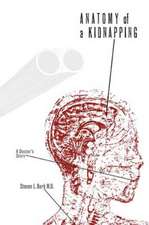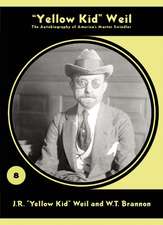Con Man: The Fabulous Rise and Murderous Fall of Club Culture: Library of Larceny
Autor J. R. Weil, W. T. Brannonen Limba Engleză Paperback – 30 iun 2004
In his long career as a confidence man, Joseph “Yellow Kid” Weil swindled the public of more than eight million dollars and established the reputation for robbery and trickery. Always beating the police at their own game, “Yellow Kid” used phony oil deals, women, fixed races, and an endless list of other tricks to best an increasingly gullible public. One day, he was Dr. Henri Reuel, a noted geologist who traveled around and told his hosts that he was a representative for a big oil company—all the while draining them of the cash they gave him to “invest in fuel.” The next day, he was director of the Elysium Development Company, promising land to innocent believers while robbing them in recording and abstract fees. Or he was a chemist par excellence who had discovered how to copy dollar bills; promising to increase your fortune, he would multiply your bills—then take the booty once the police arrived.
Originally published in 1948, here is Weil’s true and amazing story, with a smart and witty Afterword by none other than Nobel Laureate Saul Bellow, who profiled “Yellow Kid” for The Reporter in 1956. It is undeniable proof that “Yellow Kid” was the con man par excellence—the virtuoso scam artist, bar none.
Preț: 109.32 lei
Nou
Puncte Express: 164
Preț estimativ în valută:
20.92€ • 21.84$ • 17.31£
20.92€ • 21.84$ • 17.31£
Carte disponibilă
Livrare economică 14-28 martie
Preluare comenzi: 021 569.72.76
Specificații
ISBN-13: 9780767917377
ISBN-10: 0767917375
Pagini: 352
Dimensiuni: 133 x 204 x 20 mm
Greutate: 0.29 kg
Editura: BROADWAY BOOKS
Seria Library of Larceny
ISBN-10: 0767917375
Pagini: 352
Dimensiuni: 133 x 204 x 20 mm
Greutate: 0.29 kg
Editura: BROADWAY BOOKS
Seria Library of Larceny
Notă biografică
JOSEPH “YELLOW KID” WEIL was born in 1877 to German immigrant grocers in Chicago. He worked a number of odd jobs before executing a startling number of scams, primarily in the Chicago area but all over the world. He lived to be 101.
W.T. BRANNON, a native of St. Petersburg, Florida, was a prolific journalist, writer, and mystery novelist. He passed away in 1981.
W.T. BRANNON, a native of St. Petersburg, Florida, was a prolific journalist, writer, and mystery novelist. He passed away in 1981.
Extras
I
Early Adventures in Chicanery
I was born near Harrison and Clark streets in Chicago, the son of Mr. and Mrs. Otto Weil, who were reputable, hard-working people. They ran a grocery store which brought them a modest sustenance. I was sent to the public school at Harrison Street and Third Avenue. I can, without boasting, say that I was a bright pupil. Proficient in all my studies, I was particularly good at mathematics.
After classes, I helped Mother in the store, though there were times when I sneaked off to the racecourse. Horse racing had a strong appeal for me, especially the betting. But my folks could not afford to give me money to bet on the races.
When I was seventeen, I “quit” school and went to work. For about two years I worked as a collector. The salary was not large–by no means enough to satisfy my wants. But I soon discovered that, by the use of my wits, I could earn more on the side than my regular salary.
There were other collectors, cashiers, and bookkeepers. If there was a scrupulous one in the lot, I don’t recall him. Each was entrusted with the handling of money. The bookkeepers were supposed to record everything that the collectors brought in. I quickly discovered how much skulduggery went on.
The collectors were not turning in all they collected, the cashiers were holding back a little out of each collection, and the bookkeepers were not recording all that finally reached them. By various means, they managed to cover up their peculations.
I was just a young fellow, but I had a sharp eye and a quick wit. When I quietly made it known to my fellow employees that I was aware of their peccadillos, they became ready, without further urging, to contribute small sums so that I would keep their secrets. All told, these sums amounted to considerably more than I was ever paid in salary.
During this time, I met a beautiful girl. I called on her regularly and, before long, we were engaged to be married.
One day I took her to meet my folks. My mother looked her over and approved. She called me to one side.
“Joe,” Mother whispered, “she is a beautiful girl. But she is a girl for a rich man. She should not be a poor man’s wife.”
“And I’m not going to be a poor man!” I replied. “I will give her everything she wants.”
Having seen my parents struggle for their existence–my mother got up at five in the morning to open the store–I knew that such a life was not for me. Further, I had seen how much more money was being made by skulduggery than by honest toil.
In my travels about the city as a collector, I had run into a customer who interested me very much. At other times, I saw him at the racecourses and in the saloons.
Doc Meriwether always seemed to have an inexhaustible supply of money, a large part of which he spent at the race tracks. One day we got to talking over a glass of beer.
“Joe,” he said, “you’re a bright young fellow. How much do you make on that collecting job?”
“Not much,” I admitted and told him the amount.
“It’s not enough. How would you like to go to work for me?”
“I’d like to,” I replied. “But what do you have that I can do?”
“Plenty,” he declared. “And I’ll pay you three times what you’re making now.”
He explained his proposition in detail. I didn’t need much time to make a decision. At the end of the month, I left my job and went to work for Doc Meriwether.
Doc Meriwether was one of the most picturesque characters in the Middle West. He was tall, broad-shouldered, and gaunt. He wore a Van Dyke beard and pince-nez glasses. He usually dressed in black–black trousers and black frock coat with extra long tails. He wore a flowing black cravat that covered half his shirt front.
Out on the far west side of Chicago, Doc Meriwether had a “plant” where he manufactured “Meriwether’s Elixir”–good for the ills of man or beast. Doc particularly urged it as a sure cure for tapeworm.
Meriwether’s Elixir was put up in tall, thirty-two-ounce bottles. It was a dark liquid with a pleasant taste–Doc saw to that by putting in a little of the right flavoring. He left most of the bottling and manufacturing to his wife, a buxom, pleasant-faced, industrious woman. The Doc felt that he had done his share of the work when he made up the formula.
I don’t remember the exact recipe now. But the chief ingredient was rain water, caught and strained in big cisterns in the back yard of Doc’s combined home and factory. This rain water was drained off a barrel at a time, and into it Mrs. Meriwether mixed the other ingredients.
One of these was cascara, just the right amount in each thirty-two-ounce bottle to get results–plus alcohol. It was an evil-looking concoction, but pleasant enough to take, thanks to the alcohol and flavoring which Doc had thoughtfully included.
I cannot truthfully say whether anyone who took the Elixir ever got rid of a tapeworm or not. But many thought they did, for the cascara worked on everybody. As matter of fact, I doubt if very many people had tapeworm, though nearly all imagined they did.
For in that period we had a tapeworm fad. Everybody who was undernourished, anemic, or suffered from some form of malnutrition, was firmly convinced that a parasitic tapeworm was eating away his substance. Consequently, Doc Meriwether’s Elixir was a pushover at a dollar a bottle.
Meriwether’s Elixir was not on sale at drug stores, though a few grocers and general merchants carried it. Most ofit was sold by the Doc himself, during the summer months when he toured the bucolic areas. Farmers and residents of the smaller towns were easily convinced that they harbored the tapeworm.
The Doc had a medicine show which appealed to men. In addition to Indians, he had a couple of girl dancers. He made it a point to park his big wagon at a spot where the males congregated. It was a man’s world–in those days. Any crowd in a public place was likely to consist largely of men.
I acted in various capacities, depending on the locality. In some instances, I was a barker and helped to attract a crowd. At other times, I remained in the background and was the “shill,” posing as a customer from another community.
As soon as Doc had entertained the crowd a while, he would go into his spiel. “Some of you men are healthy,” he would say. “I can tell that by looking at you. But there are many ofyou who are not. Why? I think I would be quite safe in saying that a tapeworm is eating your life away. A sallow complexion, hollow cheeks, lean faces, wrinkled brows–these are all symptoms of the existence of a tapeworm.
“Are you men going to let a parasite eat away your body, your very life? Or do you intend to do something about it?” Here, he put up a hand as somebody started to speak. “I know what you’re going to say. You’ve had the family doctor in. He’s given you something for it, but it didn’t work.
“Well, I’ve got something that will work. It’s absolutely guaranteed to get results. Meriwether’s Elixir is the product of years of research. It has been found to be an absolute cure, through elimination, of the worst tapeworm that ever preyed on a man’s life.”
He exhibited the bottle with the fancy label and the black liquid. If there was good response, Doc Meriwether kept up a constant, jovial flow ofpatter and took in the dollars. But ifbusiness was slow, that was my cue to step in.
“I’ll take two bottles,” I would say.
“Two bottles, sir? But one bottle is enough to rid you of tapeworm.” “It’s not for me,” I would say. “It’s for my two children.”
“Have you used this preparation before?”
“Indeed I have, Doctor. In fact, I owe my life to it.”
“Would you mind telling us about it?” Doc would invite.
“Well, all right. A year ago, I was so run down and emaciated that I was not able to walk, let alone tend my farm. Doctors had done all they could for me, but my case had been given up as hopeless. The mortgage on my farm was nearly due. I thought that I would lose everything and that my poor wife and children would go hungry.” I would pause here to brush a sleeve across my eyes.
“Then I heard about Meriwether’s Elixir. I bought a bottle of it. I didn’t think it would do me much good, but everything was lost, anyhow. So I took it. Before I had finished the bottle, my tapeworm had been eliminated. I was able to walk again. I got my strength back. Soon I began to recover. I felt so much better that I was able to do twice as much work. My crops were extra good. The mortgage was paid off.
“And I owe it all to Meriwether’s Elixir. I’m going to give it to my two kids. I’d buy it, even if it was five dollars a bottle.”
“Sir,” would be Doc Meriwether’s tremulous reply, “you have stirred me deeply. You have made me feel that I have done something worth while for humanity. As a token of my regard, let me present you with two bottles–absolutely free.”
This bit of play-acting usually brought the crowd around. They almost pushed each other over in their rush to hand in their dollars for the wonderful mixture.
This may sound unbelievable, due to the naïveté of the rural people of the nineties.
It is true that the medicine man and his traveling show have nearly disappeared from the American scene. But the same old fraud is still going on. In a new and fancier dress it’s being promoted by medicine men with millions at their command. Their audience is nationwide and includes more city people than farmers. I refer to the patent-medicine radio shows.
In addition to the bottles, Doc Meriwether offered a “special” treatment at his suite for those who wanted to get rid of their tapeworms in a hurry and were willing to pay extra for it.
The success of the special treatment was mainly a matter of having the right stage setting and the props. The most important of the latter was a potato. This was peeled into one long coil which, for all I know, might look like a tapeworm. In an unbroken spiral it was deposited in a basin and water was poured over it. The basin was carefully hidden in a darkened room.
When the patient arrived, he was treated first in an outer room. Now the mixture was more potent: the chief ingredient was epsom salts. The patient was allowed to recline on a couch while the medicine took effect. Then he was led into the darkened room.
As soon as the dose had acted, he was led into the outer room. That was my cue. I fetched the previously prepared basin with the potato peel to the outer room, and handed it to Doc Meriwether. “There, my friend,” Doc would say, displaying the basin, “is your tapeworm! Evil-looking thing, isn’t it?”
Every victim of this hoax was deeply impressed. Not one ever questioned it. He paid the ten-dollar fee and left with the feeling that he had been vastly benefited. Maybe he had.
For he had had a good cleansing, in more ways than one!
During my travels with Doc Meriwether, I met an itinerant merchant. He appeared to be very prosperous. He told me he lived in Chicago. When I got back the following winter, I looked him up. Over a glass of beer, he related how he was able to make enough during his summer travels to support him the year round. He invited me to join him the following spring.
Early Adventures in Chicanery
I was born near Harrison and Clark streets in Chicago, the son of Mr. and Mrs. Otto Weil, who were reputable, hard-working people. They ran a grocery store which brought them a modest sustenance. I was sent to the public school at Harrison Street and Third Avenue. I can, without boasting, say that I was a bright pupil. Proficient in all my studies, I was particularly good at mathematics.
After classes, I helped Mother in the store, though there were times when I sneaked off to the racecourse. Horse racing had a strong appeal for me, especially the betting. But my folks could not afford to give me money to bet on the races.
When I was seventeen, I “quit” school and went to work. For about two years I worked as a collector. The salary was not large–by no means enough to satisfy my wants. But I soon discovered that, by the use of my wits, I could earn more on the side than my regular salary.
There were other collectors, cashiers, and bookkeepers. If there was a scrupulous one in the lot, I don’t recall him. Each was entrusted with the handling of money. The bookkeepers were supposed to record everything that the collectors brought in. I quickly discovered how much skulduggery went on.
The collectors were not turning in all they collected, the cashiers were holding back a little out of each collection, and the bookkeepers were not recording all that finally reached them. By various means, they managed to cover up their peculations.
I was just a young fellow, but I had a sharp eye and a quick wit. When I quietly made it known to my fellow employees that I was aware of their peccadillos, they became ready, without further urging, to contribute small sums so that I would keep their secrets. All told, these sums amounted to considerably more than I was ever paid in salary.
During this time, I met a beautiful girl. I called on her regularly and, before long, we were engaged to be married.
One day I took her to meet my folks. My mother looked her over and approved. She called me to one side.
“Joe,” Mother whispered, “she is a beautiful girl. But she is a girl for a rich man. She should not be a poor man’s wife.”
“And I’m not going to be a poor man!” I replied. “I will give her everything she wants.”
Having seen my parents struggle for their existence–my mother got up at five in the morning to open the store–I knew that such a life was not for me. Further, I had seen how much more money was being made by skulduggery than by honest toil.
In my travels about the city as a collector, I had run into a customer who interested me very much. At other times, I saw him at the racecourses and in the saloons.
Doc Meriwether always seemed to have an inexhaustible supply of money, a large part of which he spent at the race tracks. One day we got to talking over a glass of beer.
“Joe,” he said, “you’re a bright young fellow. How much do you make on that collecting job?”
“Not much,” I admitted and told him the amount.
“It’s not enough. How would you like to go to work for me?”
“I’d like to,” I replied. “But what do you have that I can do?”
“Plenty,” he declared. “And I’ll pay you three times what you’re making now.”
He explained his proposition in detail. I didn’t need much time to make a decision. At the end of the month, I left my job and went to work for Doc Meriwether.
Doc Meriwether was one of the most picturesque characters in the Middle West. He was tall, broad-shouldered, and gaunt. He wore a Van Dyke beard and pince-nez glasses. He usually dressed in black–black trousers and black frock coat with extra long tails. He wore a flowing black cravat that covered half his shirt front.
Out on the far west side of Chicago, Doc Meriwether had a “plant” where he manufactured “Meriwether’s Elixir”–good for the ills of man or beast. Doc particularly urged it as a sure cure for tapeworm.
Meriwether’s Elixir was put up in tall, thirty-two-ounce bottles. It was a dark liquid with a pleasant taste–Doc saw to that by putting in a little of the right flavoring. He left most of the bottling and manufacturing to his wife, a buxom, pleasant-faced, industrious woman. The Doc felt that he had done his share of the work when he made up the formula.
I don’t remember the exact recipe now. But the chief ingredient was rain water, caught and strained in big cisterns in the back yard of Doc’s combined home and factory. This rain water was drained off a barrel at a time, and into it Mrs. Meriwether mixed the other ingredients.
One of these was cascara, just the right amount in each thirty-two-ounce bottle to get results–plus alcohol. It was an evil-looking concoction, but pleasant enough to take, thanks to the alcohol and flavoring which Doc had thoughtfully included.
I cannot truthfully say whether anyone who took the Elixir ever got rid of a tapeworm or not. But many thought they did, for the cascara worked on everybody. As matter of fact, I doubt if very many people had tapeworm, though nearly all imagined they did.
For in that period we had a tapeworm fad. Everybody who was undernourished, anemic, or suffered from some form of malnutrition, was firmly convinced that a parasitic tapeworm was eating away his substance. Consequently, Doc Meriwether’s Elixir was a pushover at a dollar a bottle.
Meriwether’s Elixir was not on sale at drug stores, though a few grocers and general merchants carried it. Most ofit was sold by the Doc himself, during the summer months when he toured the bucolic areas. Farmers and residents of the smaller towns were easily convinced that they harbored the tapeworm.
The Doc had a medicine show which appealed to men. In addition to Indians, he had a couple of girl dancers. He made it a point to park his big wagon at a spot where the males congregated. It was a man’s world–in those days. Any crowd in a public place was likely to consist largely of men.
I acted in various capacities, depending on the locality. In some instances, I was a barker and helped to attract a crowd. At other times, I remained in the background and was the “shill,” posing as a customer from another community.
As soon as Doc had entertained the crowd a while, he would go into his spiel. “Some of you men are healthy,” he would say. “I can tell that by looking at you. But there are many ofyou who are not. Why? I think I would be quite safe in saying that a tapeworm is eating your life away. A sallow complexion, hollow cheeks, lean faces, wrinkled brows–these are all symptoms of the existence of a tapeworm.
“Are you men going to let a parasite eat away your body, your very life? Or do you intend to do something about it?” Here, he put up a hand as somebody started to speak. “I know what you’re going to say. You’ve had the family doctor in. He’s given you something for it, but it didn’t work.
“Well, I’ve got something that will work. It’s absolutely guaranteed to get results. Meriwether’s Elixir is the product of years of research. It has been found to be an absolute cure, through elimination, of the worst tapeworm that ever preyed on a man’s life.”
He exhibited the bottle with the fancy label and the black liquid. If there was good response, Doc Meriwether kept up a constant, jovial flow ofpatter and took in the dollars. But ifbusiness was slow, that was my cue to step in.
“I’ll take two bottles,” I would say.
“Two bottles, sir? But one bottle is enough to rid you of tapeworm.” “It’s not for me,” I would say. “It’s for my two children.”
“Have you used this preparation before?”
“Indeed I have, Doctor. In fact, I owe my life to it.”
“Would you mind telling us about it?” Doc would invite.
“Well, all right. A year ago, I was so run down and emaciated that I was not able to walk, let alone tend my farm. Doctors had done all they could for me, but my case had been given up as hopeless. The mortgage on my farm was nearly due. I thought that I would lose everything and that my poor wife and children would go hungry.” I would pause here to brush a sleeve across my eyes.
“Then I heard about Meriwether’s Elixir. I bought a bottle of it. I didn’t think it would do me much good, but everything was lost, anyhow. So I took it. Before I had finished the bottle, my tapeworm had been eliminated. I was able to walk again. I got my strength back. Soon I began to recover. I felt so much better that I was able to do twice as much work. My crops were extra good. The mortgage was paid off.
“And I owe it all to Meriwether’s Elixir. I’m going to give it to my two kids. I’d buy it, even if it was five dollars a bottle.”
“Sir,” would be Doc Meriwether’s tremulous reply, “you have stirred me deeply. You have made me feel that I have done something worth while for humanity. As a token of my regard, let me present you with two bottles–absolutely free.”
This bit of play-acting usually brought the crowd around. They almost pushed each other over in their rush to hand in their dollars for the wonderful mixture.
This may sound unbelievable, due to the naïveté of the rural people of the nineties.
It is true that the medicine man and his traveling show have nearly disappeared from the American scene. But the same old fraud is still going on. In a new and fancier dress it’s being promoted by medicine men with millions at their command. Their audience is nationwide and includes more city people than farmers. I refer to the patent-medicine radio shows.
In addition to the bottles, Doc Meriwether offered a “special” treatment at his suite for those who wanted to get rid of their tapeworms in a hurry and were willing to pay extra for it.
The success of the special treatment was mainly a matter of having the right stage setting and the props. The most important of the latter was a potato. This was peeled into one long coil which, for all I know, might look like a tapeworm. In an unbroken spiral it was deposited in a basin and water was poured over it. The basin was carefully hidden in a darkened room.
When the patient arrived, he was treated first in an outer room. Now the mixture was more potent: the chief ingredient was epsom salts. The patient was allowed to recline on a couch while the medicine took effect. Then he was led into the darkened room.
As soon as the dose had acted, he was led into the outer room. That was my cue. I fetched the previously prepared basin with the potato peel to the outer room, and handed it to Doc Meriwether. “There, my friend,” Doc would say, displaying the basin, “is your tapeworm! Evil-looking thing, isn’t it?”
Every victim of this hoax was deeply impressed. Not one ever questioned it. He paid the ten-dollar fee and left with the feeling that he had been vastly benefited. Maybe he had.
For he had had a good cleansing, in more ways than one!
During my travels with Doc Meriwether, I met an itinerant merchant. He appeared to be very prosperous. He told me he lived in Chicago. When I got back the following winter, I looked him up. Over a glass of beer, he related how he was able to make enough during his summer travels to support him the year round. He invited me to join him the following spring.
Descriere
Originally published in 1948, "Con Man" is undeniable proof that "Yellow Kid" Weil was the virtuoso scam artist, bar none. Here is Weil's story as never before, with a smart and witty Afterword by Nobel Laureate Saul Bellow, who profiled "Yellow Kid" for "The Reporter" in 1956.
















